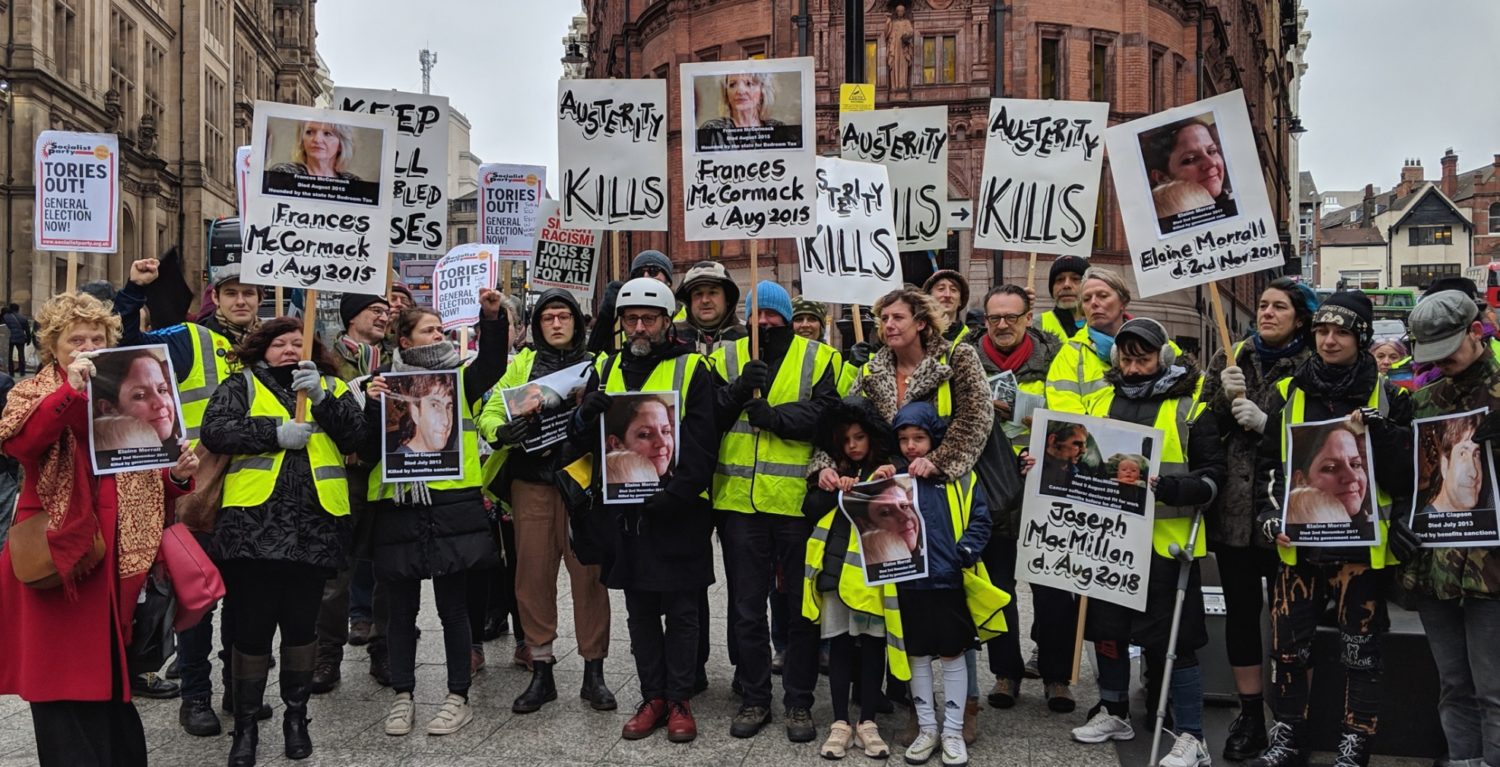Vying to win
The age of austerity may be over - but it will take time for the scars to heal, writes Amber Khan.
There have been countless discussions and debates on the topic of austerity. However, for posterity, allow me to reiterate a few salient points:
- Austerity was a disaster.
- Austerity was a political choice, not an economic necessity.
- Austerity hit the most vulnerable in society the hardest.
Austerity ripped through the social fabric of the UK and this has manifested itself in a myriad of alarming ways. The number of children living in poverty-hit working homes has risen by 800,000 since 2010. A record 4.42 million patients were on the NHS waiting list at the end of September, the highest number ever. Knife and weapon offences have reached the highest level in a decade. Councils have lost £16bn over the past 10 years.
It is clear that we need a radical change in fiscal policy. With Brexit and the climate emergency looming it will take innovative, forward-thinking policy to reverse almost a decade’s worth of deep cuts to public services. As we head towards the election, both of the major parties are vying to win the electorate over with their own brand of post-austerity politics.
One of the defining moments of the austerity age came in 2017 when we all looked on aghast as Theresa May berated a nurse who hadn’t had a pay rise in eight years. She scolded the nurse, in icy fashion that: “There isn’t a magic money tree that we can shake, that suddenly provides for everything that people want.” Fast forward to 2019 and both parties have pledged and promised costly policies, ostensibly drawing a line in the sand for the frugal approaches of the past.
However, the Conservatives’ flagship policies do little to address the devastating effects of austerity and are akin to putting a plaster over a leaking dam. Chancellor Sajid Javid has announced a 4.1 per cent rise in expenditure, the largest increase in public spending for 15 years, but the Institute for Fiscal Studies (IFS) has said that excluding health, the additional spending will only be enough to reverse around a quarter of the cuts since 2010. They have also promised to hire an extra 20,000 police officers, an ill-conceived policy given that the Crown Prosecution Service is hundreds of lawyers short and ‘will not cope’ with planned recruitment of 20,000 police officers. There has also been the contentious policy to build 40 new hospitals – it has emerged that the allocated funding will actually only be refurbishing six existing hospitals, and a further 21 NHS trusts will only receive £100m seed funding. Interestingly, analysis shows that of the 21 areas where the original 40 hospitals were promised, some areas including more than one eligible hospital, 15 are entirely or partly represented by Tory MPs.
The Labour party has proposed a bigger and more radical programme to end austerity. They have pledged to invest £150bn in infrastructure, which includes schools, hospitals and council homes. The party has also vowed to outspend the Conservatives, by £5.5bn with a £26bn ‘rescue plan’ for the NHS. Another flagship policy to open 1,000 Sure Start children centres, a welcome response to the distinct lack of resources for young children at present. The Labour party also has a plan to tackle the impending climate emergency through their “Green New Deal” proposals to cut the majority of carbon emissions in Britain by 2030. It will include a 10-year green transformation fund and will cost £25bn a year, with the view of creating one million new jobs, long-term growth, and overhauling the industry, energy, agriculture and transport sectors.
Now the parties have unveiled their ambitious spending plans, to truly begin to reverse the damaging effects of the past 10 years we need to look past the election headlines. The effects of austerity will not dissipate overnight. New analysis from the New Economics Foundation shows that at the current rate of change, it will take between four and 11 years to return departmental spending to 2010/11 levels. Even when the funding levels have been restored, recovery will be slow and it will take years to have any tangible impact on the lives of the public. Reversing the effects of austerity will take sustained, realistic commitment and investment in areas that have been deprived for so long, like education, the police force and youth services. Even then, it may be too late for the millions of people whose lives have already been decimated by the cuts.
We have, seemingly, entered a post-austerity era, with each party competing to be seen as the one that will put an end to the pernicious policies of the past. But the scars left by austerity on the national psyche will take generations to heal and this is something that we all need to be honest about.
Photo credit: Flickr/kthtrnr

